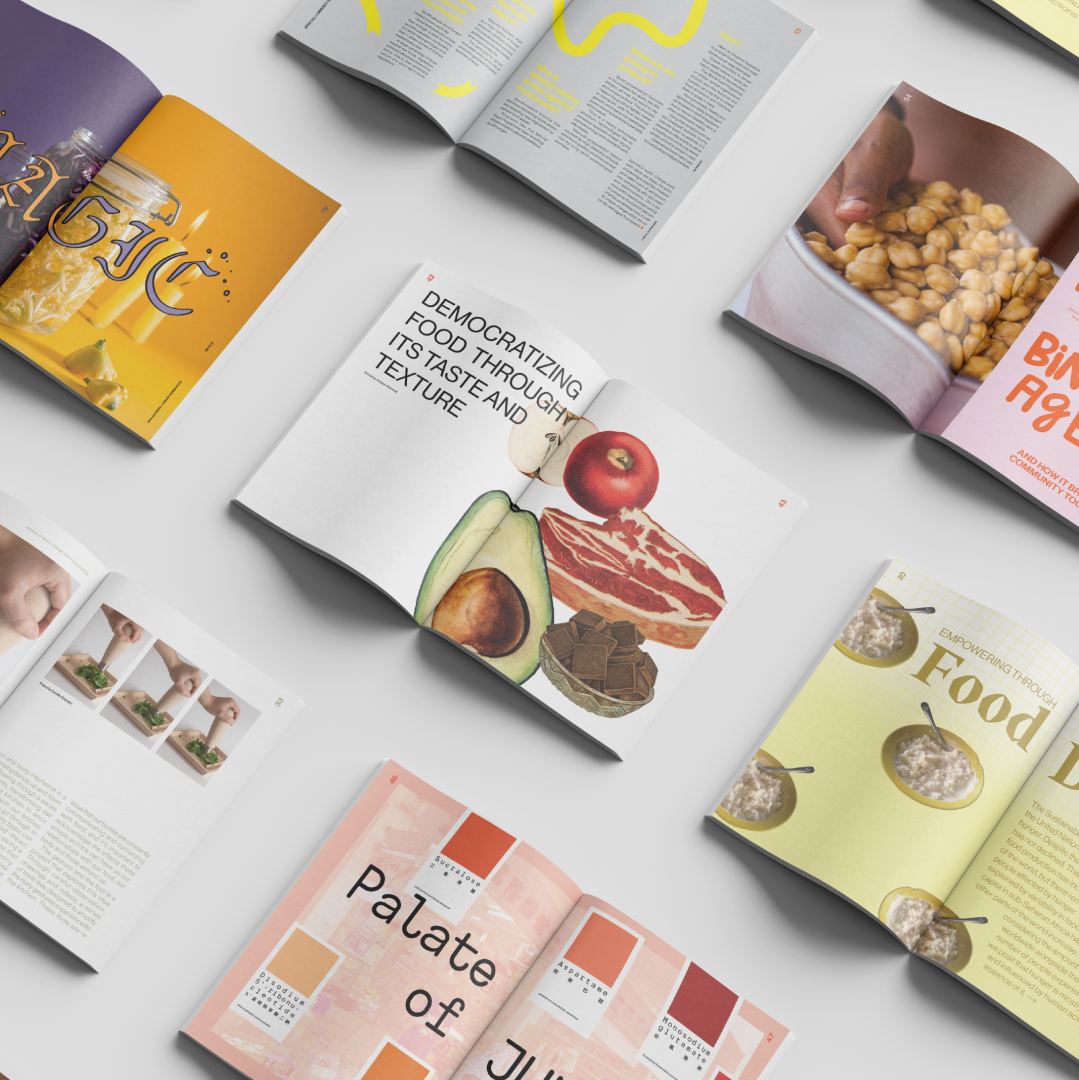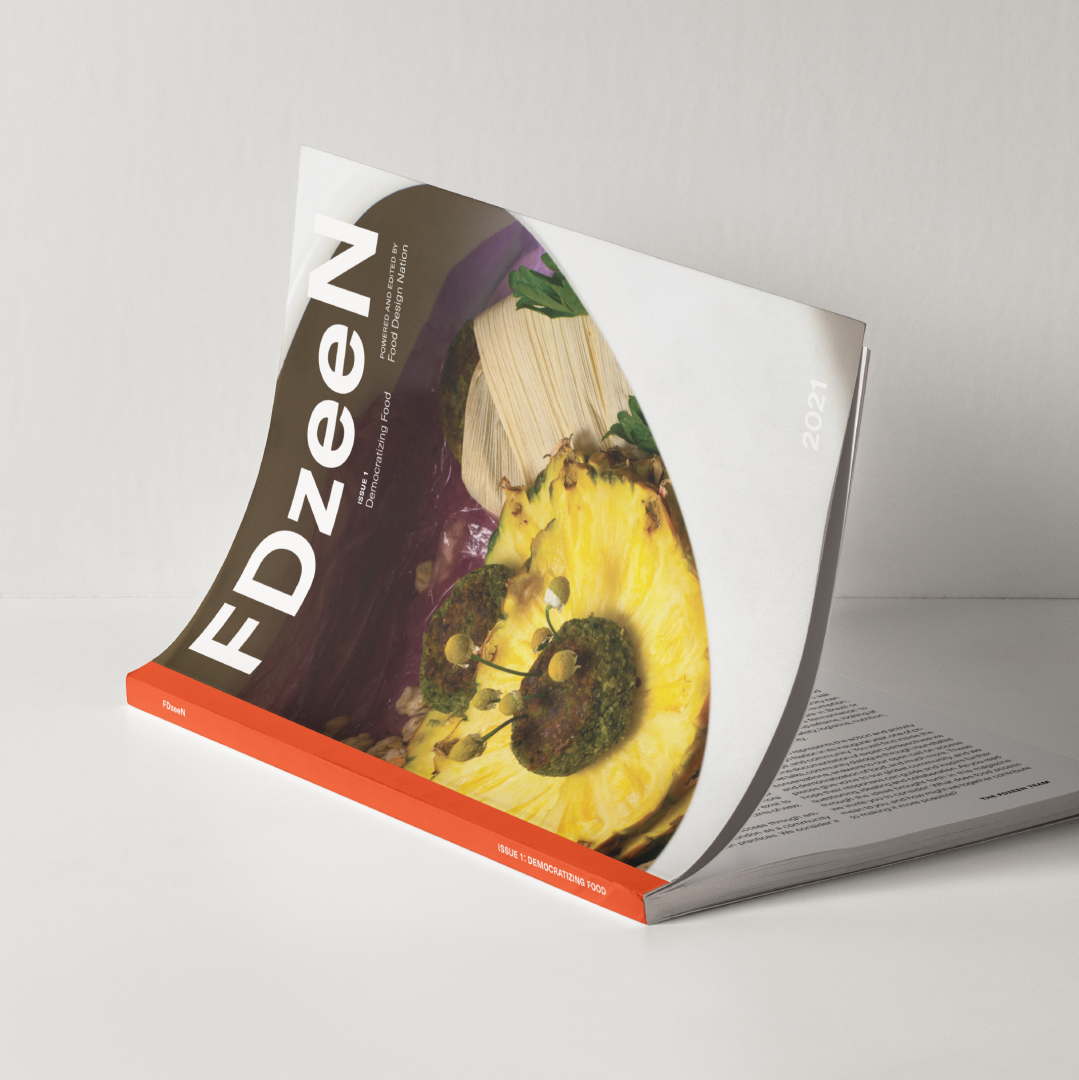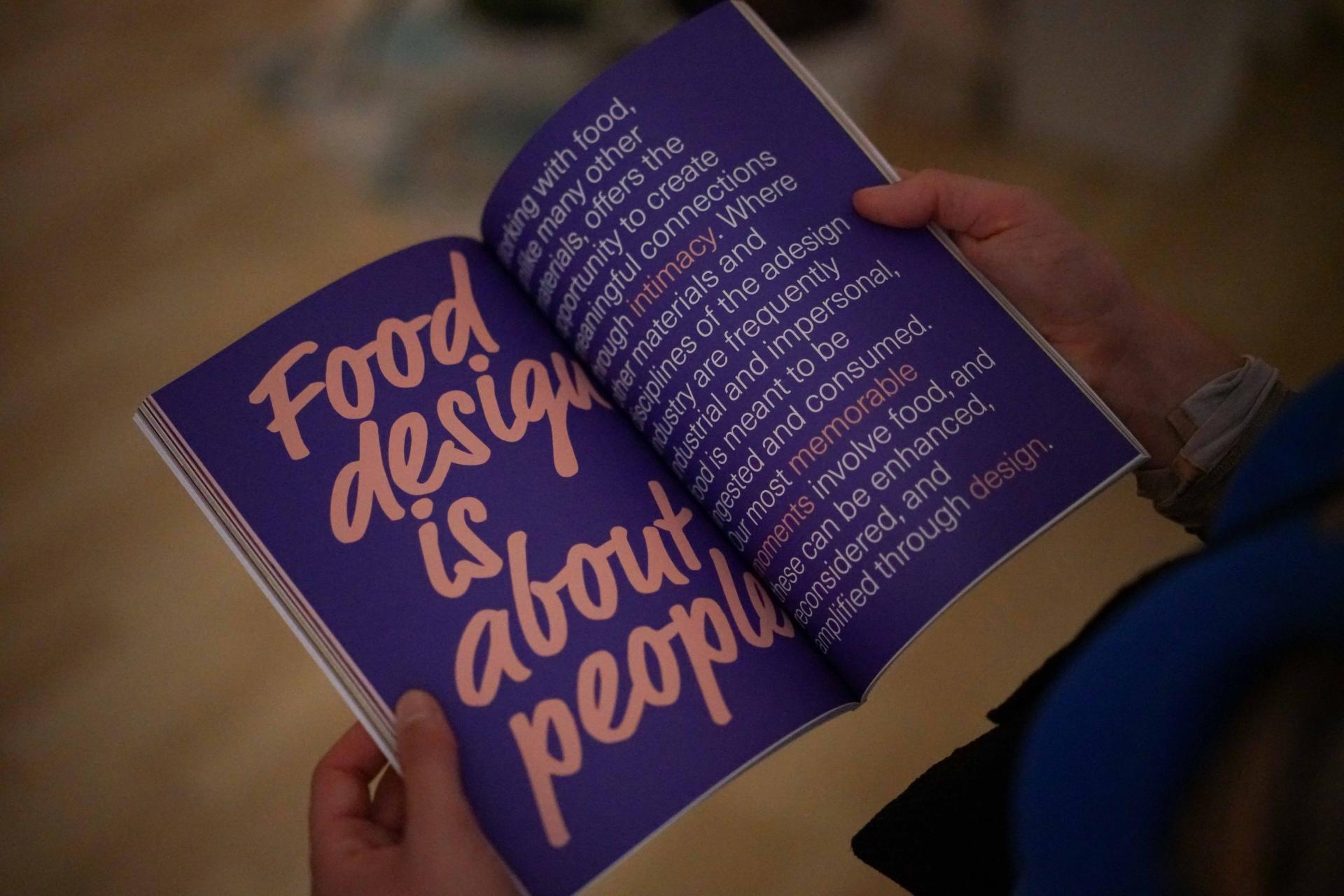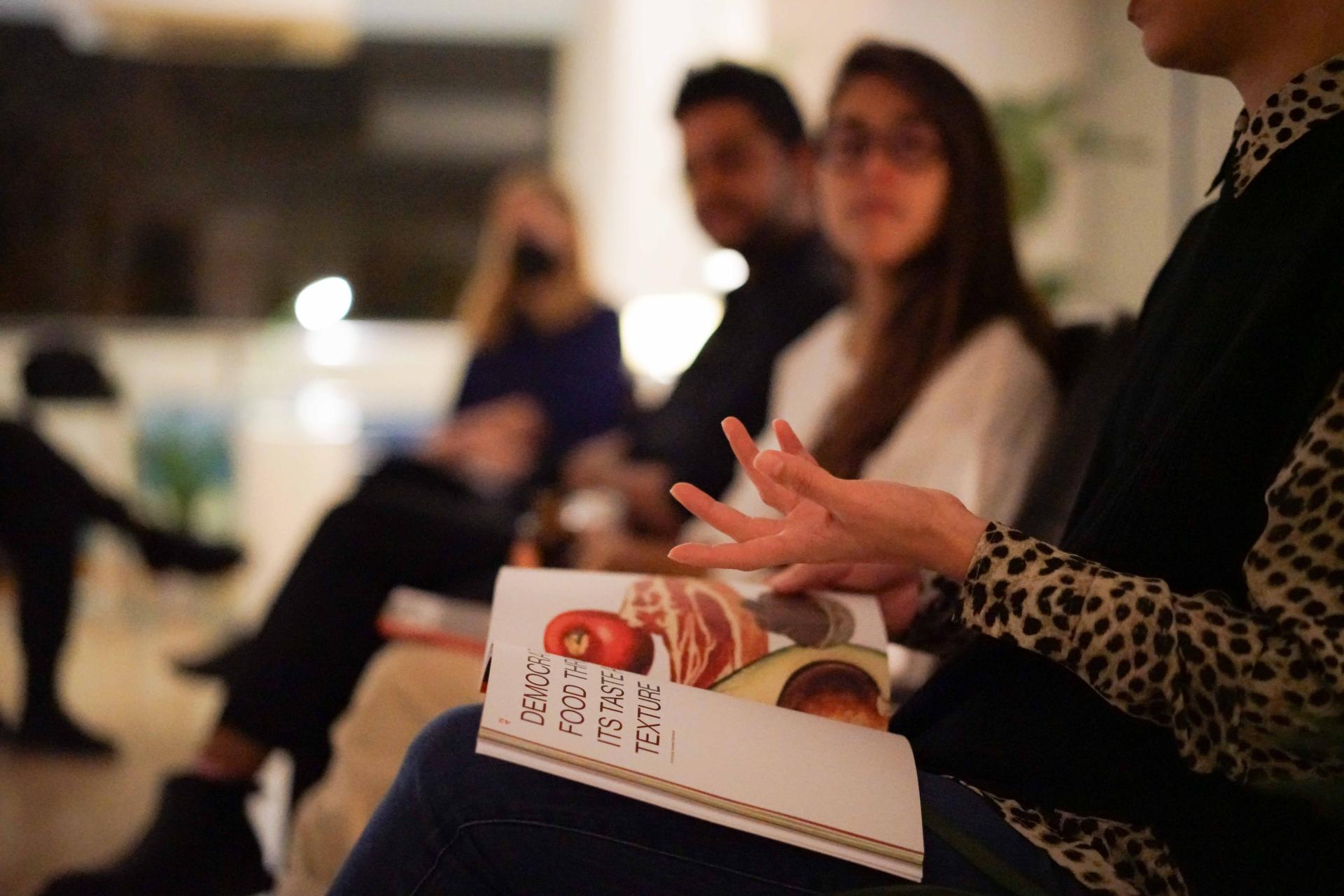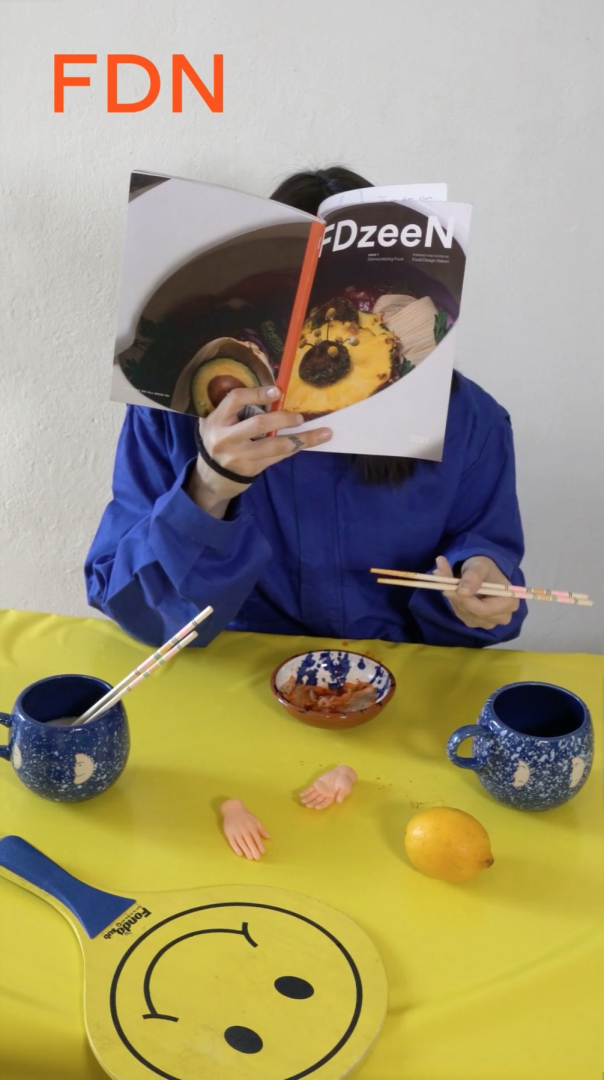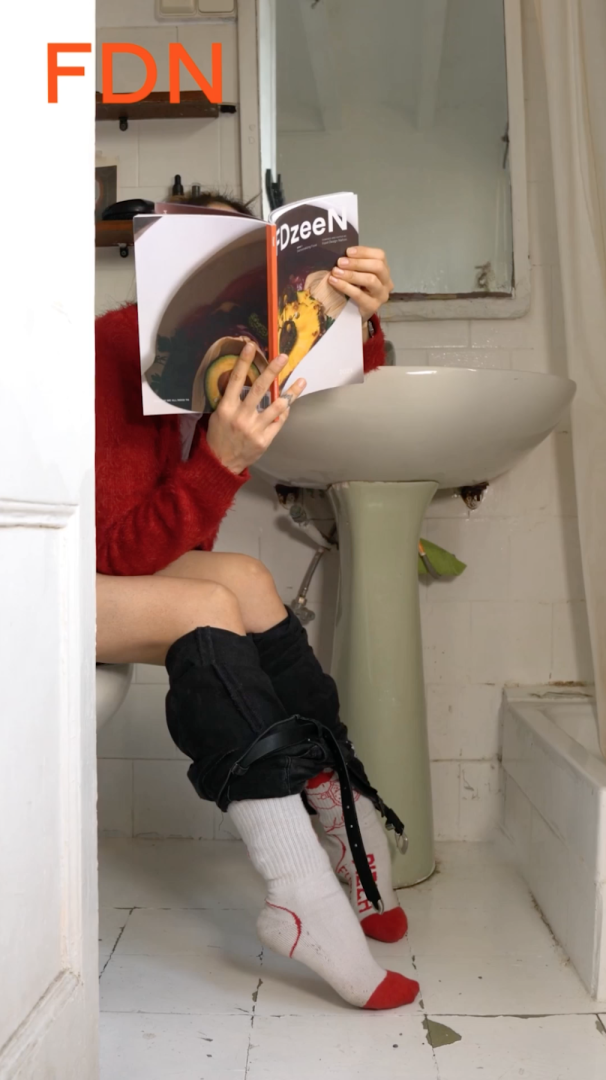FDzeeN Issue 01 - Democratizing Food
Basic information
Project Title
Full project title
Category
Project Description
What do we refer to when talking about food access? The first issue of FDzeeN has been guided, like Food Design Nation, by its community. From documentation of events and interventions to contributions submitted through an open call, the opinions and ideas found in this magazine are collected from members across the world. Each brings their personal perspective and lived experience to the question brought forth in this issue: How might we ensure access to safe & nutritious food for all?
Geographical Scope
Project Region
Urban or rural issues
Physical or other transformations
EU Programme or fund
Which funds
Description of the project
Summary
What do we mean when we talk about food access? The first issue of FDzeeN has been guided by its community. From documentation of events and virtual dinner parties to contributions submitted through an open call challenge, the opinions and ideas found in this magazine are collected from members across the globe. Each brings a unique perspective and lived experience to the question brought forth in this issue: How might we ensure access to safe and nutritious food for all?
The perspectives of our global citizens represented in this issue vary widely. We think of design as iterative, collaborative, shaped and guided by ideas that both challenge and complement each other. We can learn more about access, and the solutions that may exist to enable it, as we compare and contrast points of view. In this issue, we consider access through empowerment in Hackney, London as a community program teaches vegan practices.
We consider it through physical comfort with a set of tools designed for more natural hand motions. We’re called to ask how access to wonder, magic, and community can nourish us just as vitally as physical consumption, as in a serendipitous falafel adventure in Brazil or a collaborative effort to introduce fermentation to children in Mexico. We frame and reframe, looking at access through lenses of safety, logistics, nutrition, knowledge, and creativity.
This first issue represents the action and activity of FDN in its inaugural year, one of crisis, change, and community. We documented expert perspectives via panel talks, community dialogue through roundtable conversations, answers to our open call on access and democratisation of food, and more. These pieces give voice to our global community, and we hope their responses can guide and inspire further questioning, ideating and and collaboration. We invite readers to consider: What does food access mean to you, and how might we together contribute to making it more possible?
Key objectives for sustainability
Environmental: The magazine is available in digital format; and by printing locally and on demand, we try to minimise our carbon footprint. Contributor and service designer Carola Breuer additionally presents a proposal for preservation, a solution to fight one of the most complex and important issues of today: food waste.
Economic: FDzeeN is sold at an affordable price (starting complimentary for contributors and students). Moreover, the article "Palate of Junk" by Gabriella Lai talks about street food representing culture and how we connect affordable food to fast food. This touches also on the topic of social sustainability, identifying impacts on society by the quality of the food we find most accessible. We also ensure that the sign up process to become part of the Food Design Nation community is a reflection of the openness we imbibe: barriers to entry are as low as possible and signing up is free of charge. Similarly, in order to ensure that everybody who is interested is able to join, most of the FDN events (both on-and offline) are either free of charge, pay as you like, or minimally priced.
Social: Just like the FDN community, we created FDzeeN as a cross-cultural and trans-disciplinary project. Food Design Nation is a "borderless nation" and is meant to be a place to belong in the Food Design field. One of our (online) events, "FDN Roundtable", a virtual dinner series, has been themed around street food. Insights from Germany to Korea, from Italy to Hong Kong enabled a celebration of all facets, glories and challenges street food implies. Yet most importantly, this event strengthened our community and this strong bond is what FDN citizens have repeatedly described as being supremely special. Additionally, Ricardo Yudi, food design ideation and methodology researcher, gives real-life examples of how (food) design plays an essential role in finding solutions for systemic problems such as world hunger in his article.
Key objectives for aesthetics and quality
In designing the visual identity of FDzeeN we tried to ask ourselves: "How might we deliver each message to preserve its own voice?". First, we worked to find common elements that could also allow for and honour the variation among our contributions, choosing consciously to embrace our differences clearly - because plurality is what moves this emerging field. We developed a graphic system that allowed a unique format for each piece, connecting the respective visual and written content while keeping certain elements in the editorial piece consistent in order to create one unity.
The perspectives that shape and define Food Design are captured visually throughout the magazine. As they intertwine, we bring into clear focus a vision of the potential that is created by designing around food culture. We embrace a collective vision, complex and inclusive, that is in constant transformation.
In this first issue, “Democratizing food”, we provide a space that hosts an exchange of knowledge, experiences, and concerns, opening a window for empathy. Each contributor brings a gift that builds a collective imagination of future food systems. We believe this to be a first step in the process of transformation. We don’t ask for filters or outside influences from our community - instead, only for what is pure from our minds and the experiences that have shaped us.
This magazine is a product of synergy achieved through diversity, with contributions and direction coming from no less than 6 continents. This global diversity fosters an inclusive and freeing atmosphere, creating a space with limitless opportunity and critical hope. Of course, there are also challenges that come with these modes of collaboration. This has been the starting point for our journey as a community. We take our understanding in this process from us to us, closing a circle from learning to teaching, and back to learning again.
Key objectives for inclusion
Equal opportunities, public participation and citizen engagement are met by the chosen format of the Food Design Nation ecosystem - anyone can participate. We work across disciplines and connect different cultures, genders and age groups. We offer a carefully curated selection of engagement opportunities in various formats, working across timezones and various locations in order to ensure that participation is attractive, accessible and comfortable for a broad range of people.
Co-design lies in the foundation of Food Design Nation: every project we do, is co-designed, working always inter-culturally. To be precise, for FDzeeN, we worked with an international team of FDN citizens from 5 countries (Spain, USA, India, Brazil and Mexico) and five different backgrounds - An artist, a communications designer, an architect, a graphic designers and a photographer; As well as counted on contributions from 15+ designers, artists, creatives, and collaborators across 10 countries (Germany, France, Hong Kong, Argentina, Bolivia, Israel, India, New Zealand, UK, Canada).
Accessibility is ensured by the online presence of FDN and FDzeeN across different platforms (Our website, major social media networks including Instagram, Facebook and LinkedIn, via email communication, as well as through a private Slack channel), thereby increasing discoverability and the ease to take hold of and share content. Additionally, tickets for paid events are complimentary for students or those who could not afford it.
As mentioned before, we always want to secure affordability: basic membership is free, we organise free or pay as you like (digital) events, hosted free/minimally priced in-person launches in Barcelona, London and Madrid (and are planning more physical launch events in the future in Israel, Mexico, India, Brazil, Germany and the UAE) and with FDzeeN, we offer a reasonably priced physical product at 15 EUR.
Results in relation to category
With both FDN and the FDzeeN, we created a food design community where individuals feel like "they really found their people" and belong to a like-minded group that are connected through a strong sense of belonging. Our community celebrates diversity. We've organised meet-ups where it was impressive to see that people who have never met in person before really felt like they are friends because of this shared purpose.
For the launches of FDzeeN in Barcelona, London and Madrid, we performed physical transformations of different existing places showing how a refurbished built environment (including public spaces) can create a connection with local historical heritage and traditions. The repurposing of spaces towards positive intergenerational exchanges and community-building is an important dimension to dive deeper into in the future (e.g. During our London launch at the historic Arch 126 Salamanca Street at Salty Studio). Additionally, regenerative processes like described in Yudi’s proposal contribute to restore pride or to shape future-oriented ambitions for communities at regional levels.
The transmission of knowledge, know-how and skills thanks to FDzeeN, e.g. the article “Palate of junk” but also in Yudi’s article, leads to a development of products, processes and business models that build on local culture, traditions, knowhow, craft and contemporary diversity and creativity. More examples are the articles ”Fermentation is about magic”, and “Gesture and the tool”. Project examples are “Made in Hackney”, “Freight Farms”, “Grocery Neighbour” and “Curry Club”.
We work on creating a sense of belonging on a local scale in different places: e.g. with the spotlight on Mexico, connections in Munich and India or the Barcelona meet-up last year (image attached). The way we mobilise transdisciplinary approaches and build on participatory processes involving relevant communities demonstrates replicability in the sense of providing local solutions to global challenges.
How Citizens benefit
The conceptualisation phase began with a live vote at the online launch event on January 7, 2021. We asked attendees to choose which United Nations Food Systems Summit 2021 action tracks to address with the first issue of FDzeeN. In the spirit of democracy, participants voted for Action Track 1: Ensuring access to safe and nutritious food to all.
The open call for contributions to the first issue was open to all Food Design Nation citizens (anyone coming from a creative background and dedicated to transforming our food systems). People can become a FDN member online for free within a few minutes.
As described in detail above, all magazine collaborators have worked in a trans-disciplinary international team consisting of 5 members from Spain, USA, India, Brazil and Mexico, and coming from five different backgrounds - An artist, a communications designer, an architect, a graphic designers and a photographer; As well as counted on contributions from 15+ designers, artists, creatives, and collaborators across 10 countries (Germany, France, Hong Kong, Argentina, Bolivia, Israel, India, New Zealand, UK, Canada). So far organised physical launches in Barcelona, London and Madrid (and are planning more physical launch events in the future in Israel, Mexico, India, Brazil, Germany and the UAE).
Regarding the benefits derived, we are proud to have created a sense of belonging in the Food Design field and to have found a purpose of doing something we love, together. We have also opened up different perspectives and created a way to showcase the work of our talented members in different media (online and in print) internationally. With the creation of the Food Design Nation community, (almost) endless opportunities for collaborations between the FDN citizens, but also with institutions and companies in the field arose. We have already received international presence and recognition.
Physical or other transformations
Innovative character
In comparison to other food magazines, FDzeeN does not only provide recipes, but celebrates the stories of local heroes. It addresses full food value chains (from production to procurement, processing, preservation, storage, transportation, display and sale, preparation, consumption and disposal) and shares deeper knowledge.
In comparison to other online communities, FDzeeN is specifically dedicated to food enthusiasts, designers, gastronomes, researchers, etc. As opposed to other initiatives on social media, FDzeeN is focused on one main overarching topic, and creates (and built during the creation process) meaningful connections with like-minded people. The Food Design Nation community, on the other hand, filters out the noise, and helps facilitate meaningful connections between driven creatives from diverse backgrounds who are dedicated to addressing challenges faced by our global food systems from a local context.
In comparison to restaurants, we ourselves are not (necessarily) chefs, we work with chefs and experts of food systems. We have a strong digital presence with physical activations in the form of workshops, (launch) events, focus groups, book clubs, etc. which helps us spread the food design joy far and wide to broader audiences.
Learning transferred to other parties
Transferring the projects' results and learnings can be beneficial to a broad variety of stakeholders:
- To educational institutions: The frameworks laid out in FDzeeN supported by the opinions and content of the magazine itself can be useful to students, faculty and researchers in educational institutions in order to derive insights that can be converted into concrete contents of curricula across educational programs at different levels of education.
- To food companies: For example, to receive insights about consumer behaviour, focus groups, initiatives and campaigns aimed at target audiences, track trends, etc.
- To hospitality: To adapt their offering / menus to current findings, tendencies, etc. This can be both regarding the use of resources but also the preferences of guests, or major shifts in global food-ways, for example.
- To cultural organisations: To retrieve knowledge that can be transferred into exhibitions, educational/cultural programs for their visitors, young populations and support tourism efforts.
- To tourism boards: In order to enhance their own cultural knowledge, bring international perspectives and celebrate traditions, especially regarding heritage and food (production). It can also give ideas for which topics to focus on, e.g. with prizes such as this one, funding opportunities, new-age mixed-media exhibitions, etc.
- To gastronomy festivals: To incorporate current findings, tendencies, etc. into their offer, as well as to retrieve knowledge that can be transferred into exhibitions or educational cultural programs for their visitors
- To other creative communities: To get insights on how international (online) communities can be built and meaningful collaborations can be deepened.

